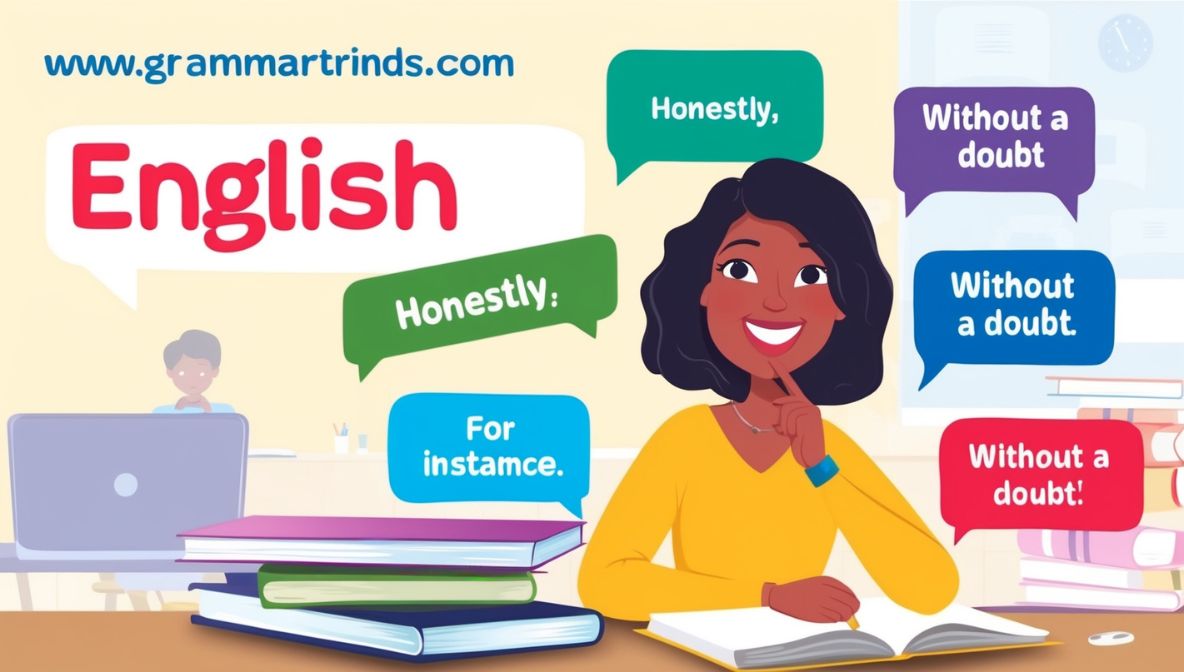If you want to sound more natural and confident in English, learning different ways to start a sentence is a great place to begin. Using varied sentence starters not only makes your writing more engaging but also helps you speak more smoothly. Whether you’re aiming to improve English fluency or just want to add some flair to your everyday conversations, mastering these simple techniques can make a big difference.
In this article, you’ll discover useful English sentence starters and sentence opening phrases that fit both casual and formal situations. We’ll also explore helpful spoken English tips and how to use transition words in writing for clearer communication. Get ready to boost your skills and speak with confidence!
Why Using Different Sentence Starters Matters
Starting sentences in various ways helps avoid repetition and makes your communication more dynamic. It guides your reader or listener smoothly through your ideas while showing off your range of expressive English phrases. This skill is essential for anyone aiming to write in English or speak clearly and confidently.
1. Start with Adverbs of Viewpoint
Using adverbs like honestly, frankly, or fortunately at the beginning of a sentence adds your personal opinion or attitude right away. These sentence opening phrases instantly set the tone and make your message more relatable. Example: Honestly, I think this is one of the best ways to learn.
2. Use “With” and “Without” for Contrast
Starting sentences with with or without helps highlight differences or conditions clearly. These simple starters are great for making comparisons or setting the scene in your writing and speech. Example: With more practice, your English speaking skills will improve quickly.
3. Begin with “After” or “Before” + -ING Form
Starting a sentence with after + ING or before + ING shows timing and sequence, which is useful in both storytelling and explanations. It adds flow and structure without sounding repetitive. Example: After finishing the lesson, try practicing with a friend.
4. Open with “Like” and “Unlike”
Using like or unlike at the start helps draw comparisons or contrasts between ideas or things. It makes your English sound more natural and conversational. Example: Unlike other languages, English has many common English phrases that change meaning depending on context.
5. Use “Despite” to Show Contrast
Despite is a strong way to introduce a surprising or opposing idea. It’s perfect for academic writing or everyday conversation when you want to emphasize contrast. Example: Despite the rain, the event went on as planned.
6. Start with “According to”
This phrase is great for citing sources, giving authority to your statements, and improving your academic writing sentence starters. It makes your English sound professional and credible. Example: According to recent studies, learning new words daily helps memory retention.
7. Introduce Examples with “For Instance”
For instance is a smooth way to introduce an example or illustration. It’s a handy alternative to “for example” that can make your writing feel fresher. Example: For instance, you can use transition words in writing to connect ideas clearly.
8. Show Cause and Effect with “As a Result”
Use as a result to explain consequences or outcomes. This transition word in writing adds clarity and logical flow. Example: She practiced every day; as a result, her fluency improved significantly.
9. Add Frequency with “Every Once in a While”
This phrase softens statements about frequency and adds a conversational touch. It’s perfect for sounding more natural when talking about habits or routines. Example: Every once in a while, take a break to refresh your mind.
10. Emphasize Certainty with “Without a Doubt”
Use without a doubt to strongly assert your opinion or confidence. It adds impact and can make your spoken and written English more persuasive. Example: Without a doubt, practicing spoken English daily is key to success.
FAQs About Sentence Starters
Can sentence starters help in formal writing?
Yes, using varied sentence starters can make formal writing clearer and more engaging.
Are sentence starters only useful for spoken English?
No, they improve both speaking and writing skills by adding variety and flow.
How can I practice using sentence starters?
Try writing short paragraphs using different sentence starters or incorporate them in daily conversations.
Final Thoughts
Using different ways to start a sentence makes your English more interesting and clear. It helps you avoid repeating the same words and sounds more natural. Whether you are writing or speaking, strong sentence starters grab attention and keep your audience engaged. Practicing these simple techniques will help you improve English fluency faster. Remember, variety is key to sounding confident and expressive. So, try out these starters in your next conversation or writing and watch your skills grow. Keep it simple and keep practicing!
